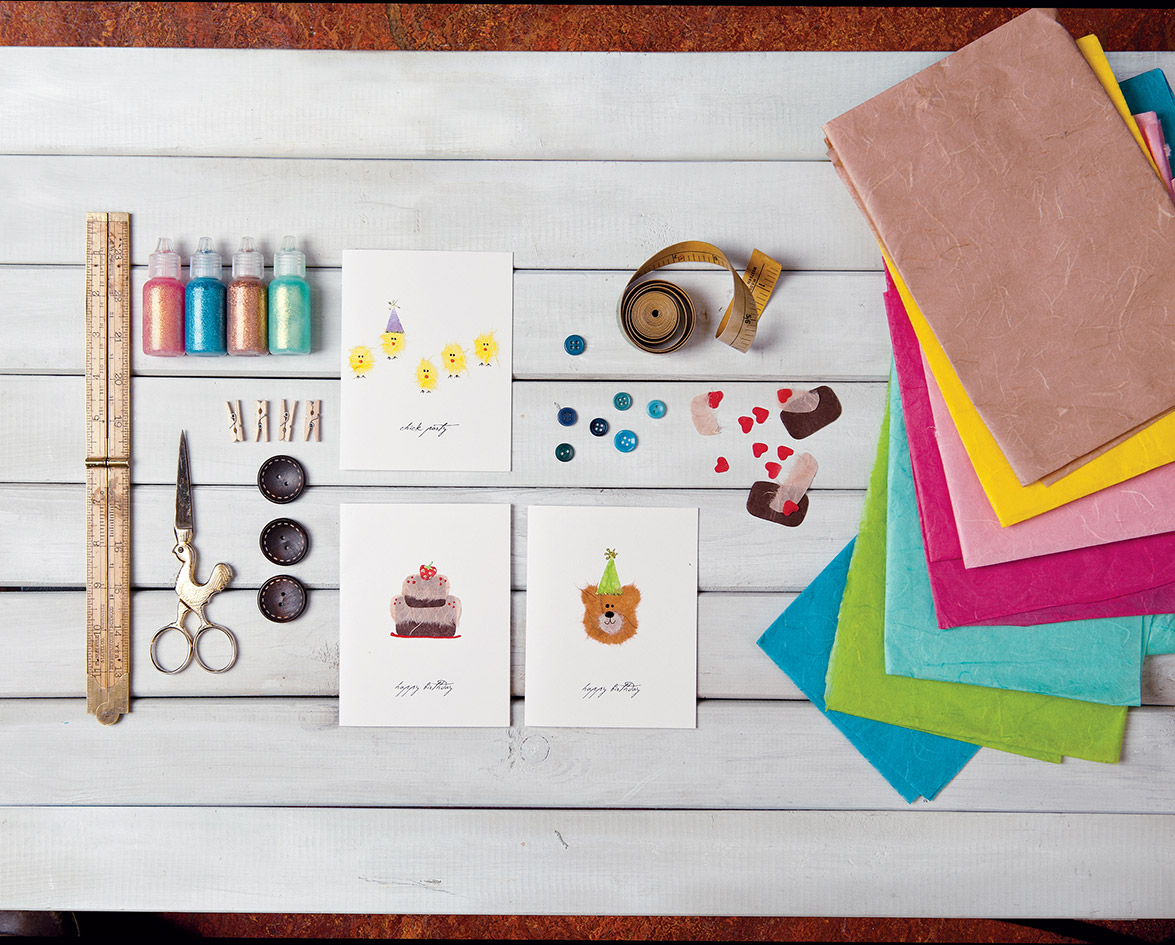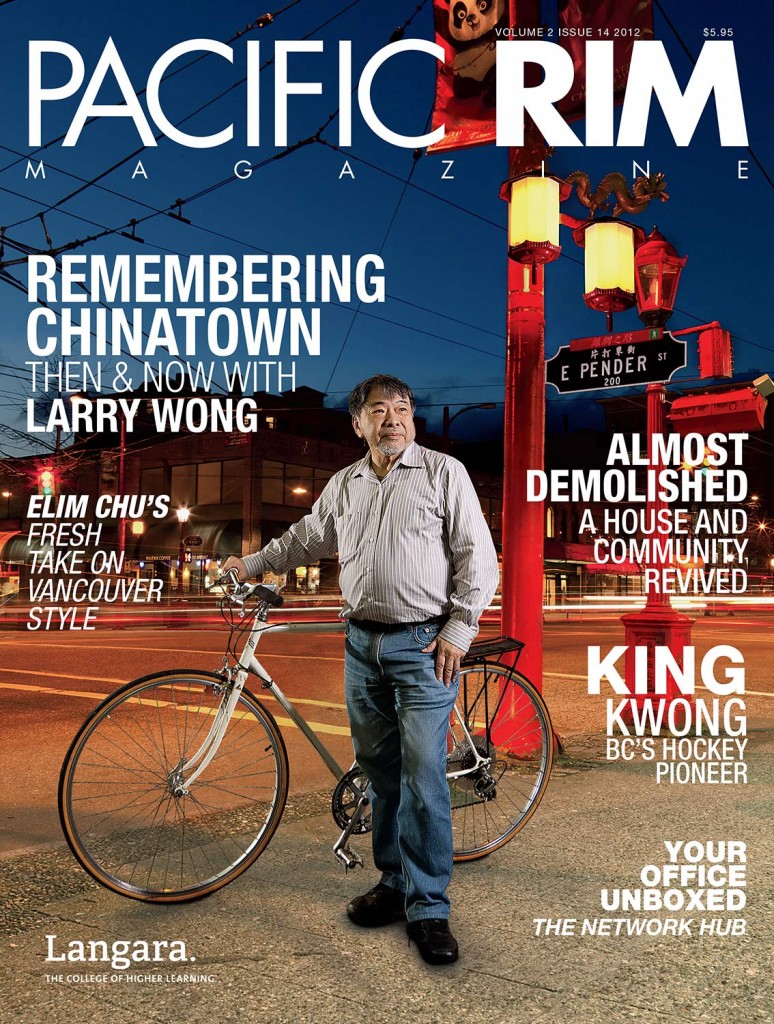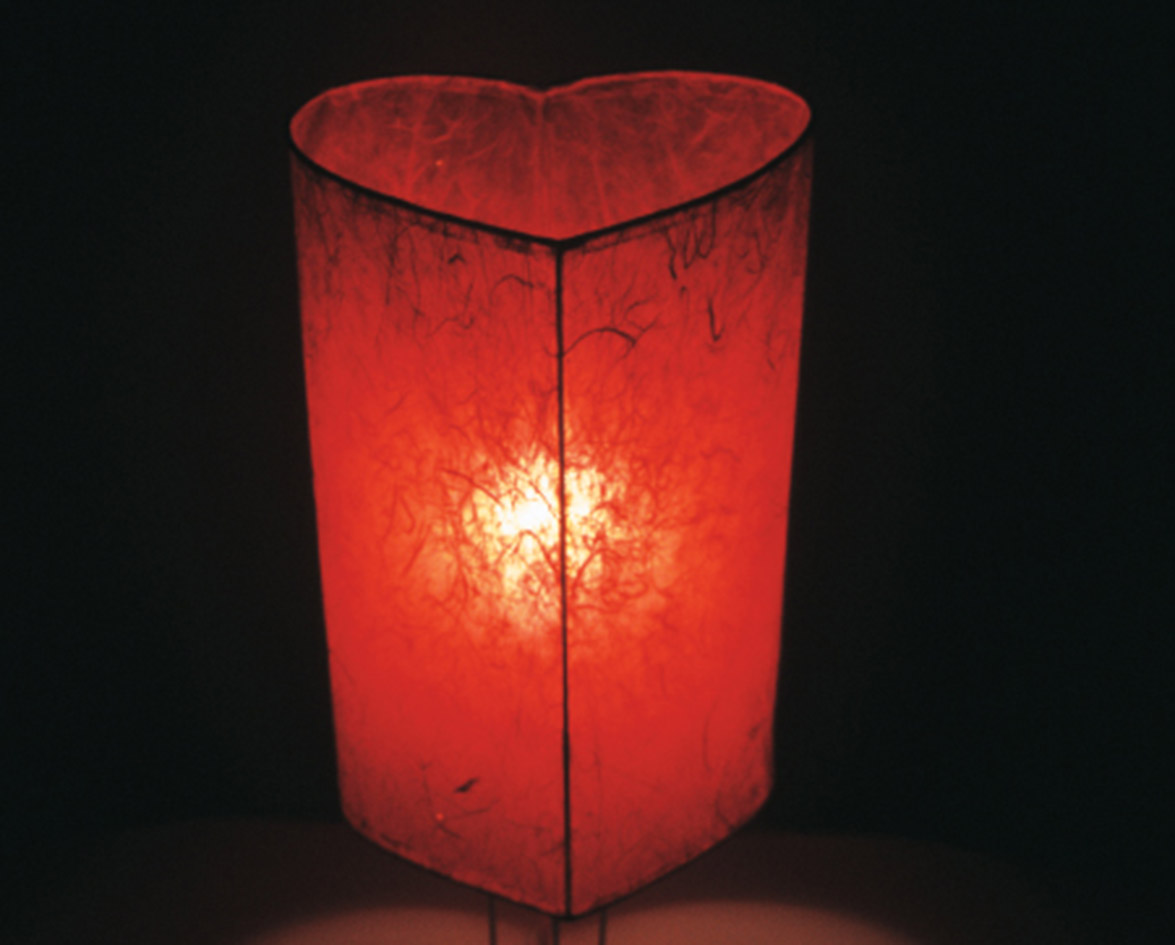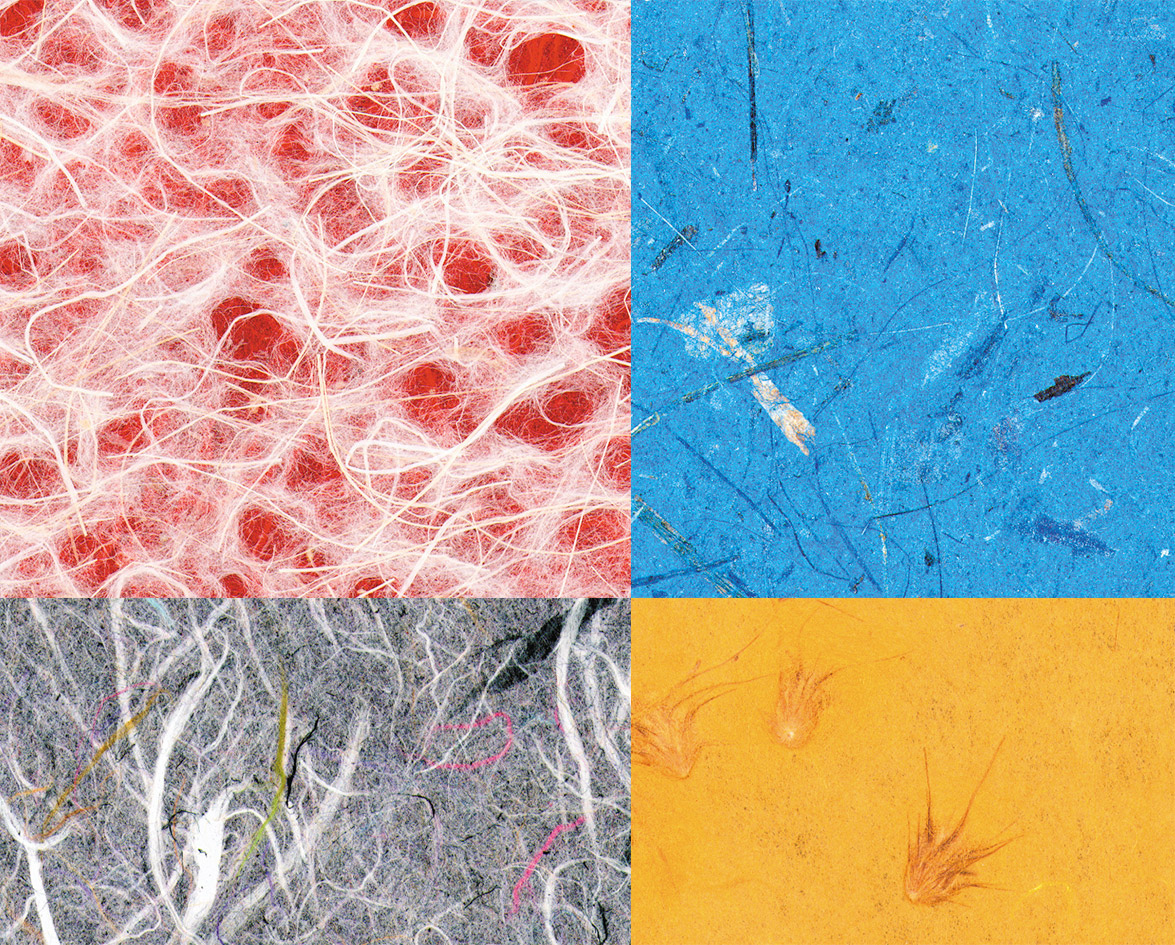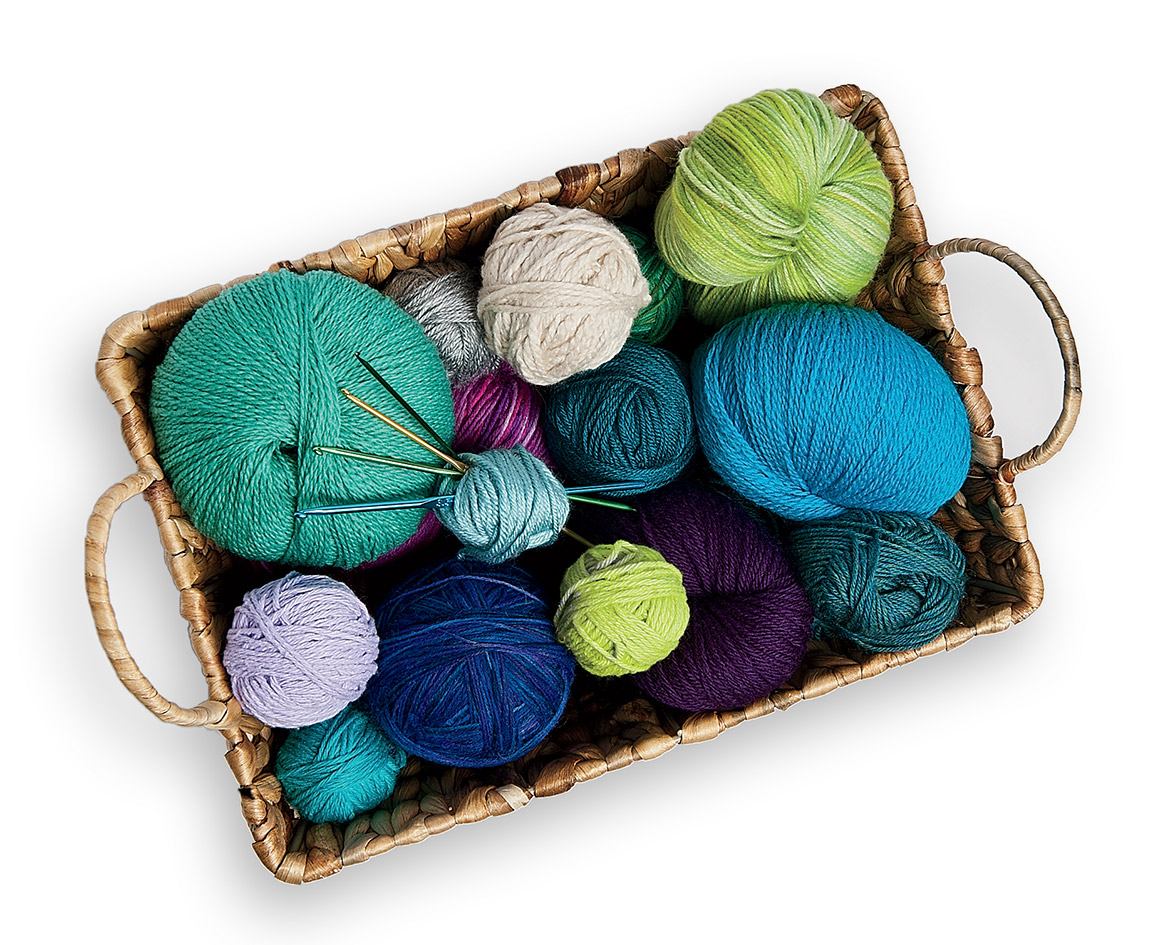In her home office on Vancouver’s west side, Shannon Barnes sketches out a guide for her latest design, then tucks it into an envelope that will join a package of colourful paper, glitter, and glue to be sent off to one of her employees. For her numerous greeting card designs, in circulation at major retailers in the United States, Canada, and Europe, Barnes has no central factory and no shipments to organize from manufacturers overseas. All of her cards are handmade here in Vancouver, by local women in their own homes.
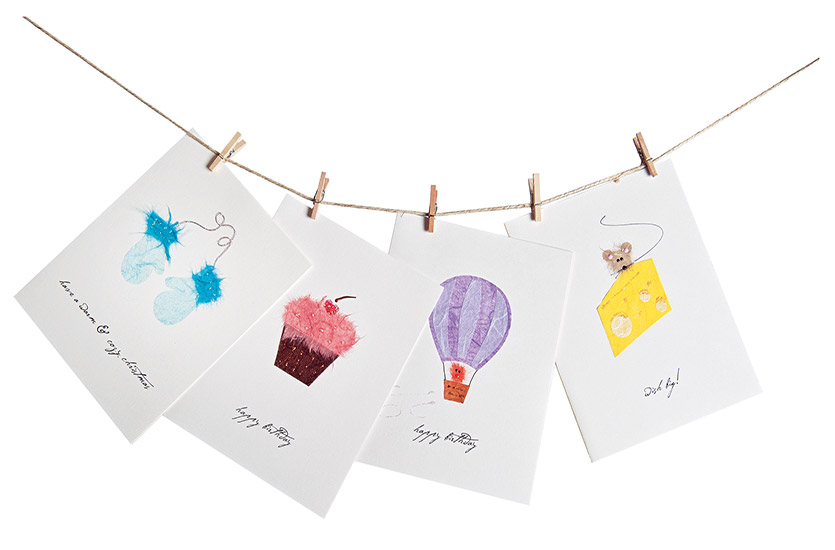
Barnes is the proud owner of Flaunt Handmade Correspondences, a company she started in 2001 with a little push from her friends. Not long after getting into her first store, Barnes came up with her trademark fuzzy mulberry paper animals, giving her cards the consistency and recognition they needed to succeed. Now, ten years on, Barnes’s cards sit on the shelves at major retail stores with the biggest players in the multi-billion dollar greeting card industry, almost all of whom have handmade manufacturing done in China.
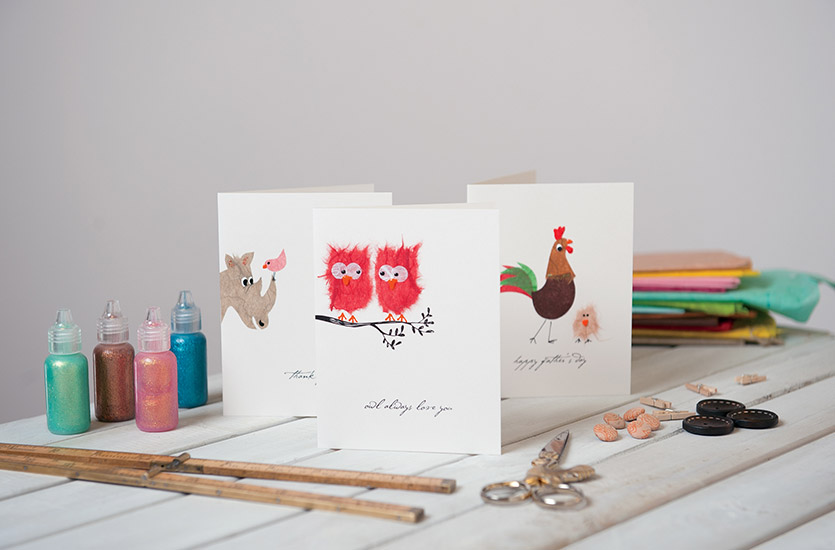
China is the largest exporter of greeting cards into North America, and with the average wage for factory workers around CAD$1/hour, it can be hard to compete. Despite this, Barnes is able to keep her prices competitive with larger companies like Papyrus and Hallmark, who outsource hand-finished cards overseas. Her profit margins may not be as high, but being handmade in Canada sets Barnes’s business apart from bigger greeting card companies, and it is a factor that consumers are increasingly looking for.
What Sets Flaunt Apart From the Rest Of the Industry?
With its hand-torn paper good looks, cute and quirky expressions, and locally produced appeal, Flaunt occupies a rare niche in the greeting card industry. This certainly helped ensure the company’s survival during the economic recession, but it is not the only thing that has made Flaunt successful. Flaunt was able to flex with the economic downturn due to the local and made-to-order aspects of the company. Barnes never has to worry about sitting on a huge stockpile of product that may not sell. Nor does she have to deal with long lead times and large minimum volumes on orders from overseas in a market that can be hard to predict.
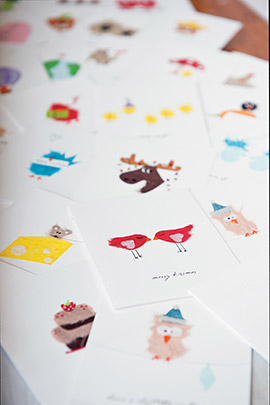
Barnes’s local team of card makers are responsible for assembling the cards, from ripping up the mulberry paper into little animal shapes, to painting on their faces and flourishes, to getting the cards packaged and ready for distribution. The cards are not expected to look identical, as they would on an assembly line. Being able to see the hands of the maker in each card is part of their appeal. Due to the nature of this sort of card making, piecework is the only model that makes sense for Barnes, and her employees are happy to accept the work as it comes. Many use it to supplement other incomes. For those who do this work full-time, it is the ability to work from home that makes it a desirable job, and dramatically different from assembly work at a central factory. It is important that her employees feel they have value in the company, that the work they do is enjoyable rather than mundane, and most importantly, that they get a sense of satisfaction from what they are doing. People want to get a sense of fulfillment from their work, and being able to see what you are producing from start to finish helps.
“It goes against my nature as a human to export the labour to China,” says Barnes. “I just picture a woman sitting in a factory making bra clasps her entire life, never seeing the finished product, and never getting that satisfaction that comes from seeing something complete.”
For Barnes, business is about more than just making revenue. Feeling good about what she does is worth a lot more to her than maximizing profit margins. That sentiment is equally important to the people who turn over her cards and happily discover that they are handmade here in Canada, by a group of satisfied and dedicated employees.





